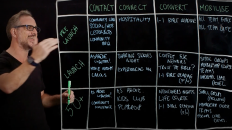This is the third in a series of three guest blog posts from Anglican Deaconness Ministries during our month-long concentration on women in ministry. In this post Journalist and long-time ministry worker Robyn Powell talks a
bout the simple truths of pastoral care that can turn even the smallest opportunity into a valuable connection:
Heart and maps
I come from a family of bad-hearted people.
No…wait…that didn’t come out exactly as I intended.
What I mean is…lots of people in my family have bad hearts…hearts in the physical sense, not the emotional/metaphysical way.
What I mean is, lots of people in my family have had problems with the old ticker: heart attacks and failures, murmurs and bypasses. My family has done it all. Some lived to tell the tale. Many did not.
I myself had a dance with rheumatic illness in my childhood which left me with a heart murmur and (due to the fact that I was not allowed to run or jump for a couple of years after my hospitalisation ), a distaste for all sport except as an interested and opinionated spectator.
So when I woke in the middle of the night recently, with my heart pounding so fast and so furiously I thought it would break through my chest at any moment, I thought that maybe my number was up.
My first thought, “Is this it? Is this how a heart attack starts?” was quickly followed by thoughts that ranged from “But I don’t have any grandchildren yet!” to “I’m so glad I turned the dishwasher on before bed!”
Because I live in a small town, the trip to hospital took less than two minutes, and within 17 minutes of waking, I was hooked up to a monitor, and various drugs were being pumped in.
Now, an episode like this (turns out it was atrial fibrillation… “quite common in older people,” the young -I’m guessing he was 12- doctor brightly informed me) concentrates the mind wonderfully, and as I laid on the bed in the emergency room for the next 10 hours, a number of thoughts presented themselves to me. I would now like to share just some of them with you.
First of all…pastoral care is a very, very, good thing. Lack of even simple pastoral care can make suffering so much worse.
Now, just to be clear, I was at a public hospital in a prosperous country town, where the people are friendly and everyone knows his neighbour.
But on this night (where for most of those 10 hours, I was the only patient in the room) pastoral care, or even any kind of personal interaction, was completely ignored by the staff.
From the time I gasped and tottered my way in, to the moment I breezed out, not a single person asked my name. No-one, except the 12 year old doctor, volunteered his or her name (the doc introduced himself as “Rob” to which I replied that that was my name too. He made no comment, but later, on perusing my chart, he delightedly pointed out that we had the same birthday, so I guess we bonded in a weird 12 year old doctor/ 58 year old patient kind of way). One nurse persisted in calling me “my dear” which just made me mad. My husband doesn’t even call me that!
Don’t get me wrong, I realise that in an emergency room, small talk is not the order of the day…lives are at stake, and seconds can count. But as someone who works in a place where pastoral care is highly prized, I was amazed at the difference the lack of small pleasantries counted in how well cared for I felt. I was very well cared for in a medical sense, but I felt unimportant, small and stupid. And it was all because no-one asked me my name.
It really made me think about the way I speak to people…the check-out chick, the receptionist, the Red Shield Appeal collector. They are all people who come across my path, and to my great shame, sometimes I forget they are people. I don’t look them in the eye, I don’t smile, I don’t thank them for the job they do.
Pastoral care doesn’t necessarily mean sitting down for a deep and meaningful…sometimes it is as simple as a smile, a thank you or a “what’s your name?”
My second thought on the very hard, very slippery and uncomfortable ER bed was not what I was expecting. I always thought that perhaps, when the possibility of death was upon me, I would start reciting the 23rd psalm….as all good Christians should. But I didn’t. Instead, my thoughts turned to JRR Tolkien.
I regret that I am now about to be outed as a good old-fashioned 1970s Ringy, but that is the price that must be paid for honest transparency.
My second favourite hobbit is young Pippin Took . (Sam Gamgee is number one, thanks for asking.) On one occasion when young Pippin has done yet another stupid thing and asked yet another stupid question, Gandalf the great and wise wizard explodes. Pippin is lost. He doesn’t know where they are or where they are going. Gandalf points out forcefully that when they were back in safety, he showed them all the maps. He left the maps out in full view, so everyone could see them and everyone could know where the quest might take them. Pippin didn’t read the maps.
We know that Tolkien was a Christian, and was very instrumental in the conversion of CS Lewis, so I have always attributed a deep meaning to this little passage. I don’t know whether it is what the great man intended or not, but I have decided that it has a deeper, Christian meaning. And on that night, when I really was a little bit scared, this popped into my head.
I am so grateful I have read the maps. I am glad that God, in his kindness, allowed me a life that meant I was able to stop and read the maps. I became a Christian at the age of 17, and in the 40 plus years after, I have had the enormous privilege of excellent bible teachers, of pastorally gifted friends and colleagues. I have been taught, encouraged and rebuked by those wiser, kinder and more godly than I am. They have taught me to read the maps, to understand the death and resurrection of the Lord Jesus Christ and have helped me to have a certain knowledge of my eternal home when this life is through.
But the world is full of people who haven’t read the maps…who don’t know where they are or where where they are going. And in the days since that frightening night, I’ve pondered a lot on how privileged I am to work at Mary Andrews College where we teach both pastoral care, and map reading!
At Mary Andrews College, we know that a deep knowledge of God’s word is the greatest thing any person can have. We teach people to read and understand the Bible for themselves, and then we give them the confidence to go and share that knowledge. But we also teach pastoral care skills. I can positively assure you that if a Mary Andrews College student had been working as a nurse in that emergency room that night, I would not have felt like a number, a patient, a malfunctioning muscle that just needed drugs to kick it back onto the straight and narrow. We teach our people to care for people as Jesus cared for people…with an eye to the whole person, not just the presenting problem.
So, here are the lessons I have learned from my Big Night Out.
- Practise the 23rd psalm (I’m always a bit shaky around the second last verse).
- Always start the dishwasher before bed.
- Thank God for the great map, the Bible, and for the freedom we have in this country to teach others its truth.
- Mary Andrews College really is the best college in the world!
Robyn Powell is in good health, and even a trip to hospital didn’t clear up her appalling case of verbosity. She really wishes everyone would come and do the Pastoral Care Course at Mary Andrews College. Enrolments for Semester 2 are now open!



